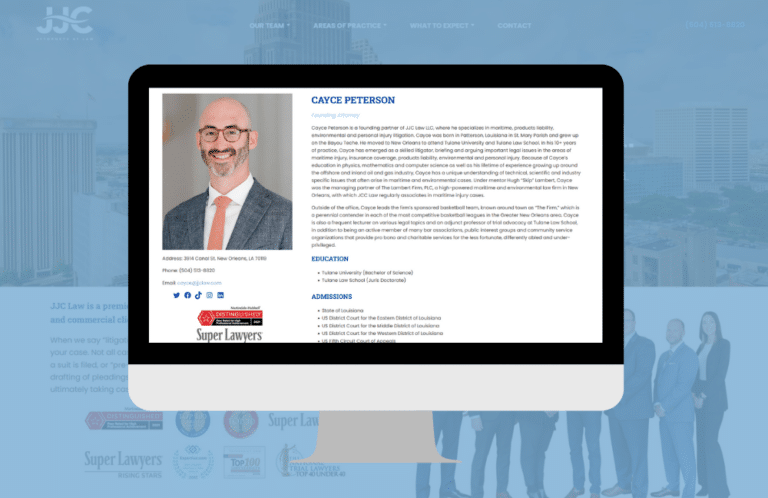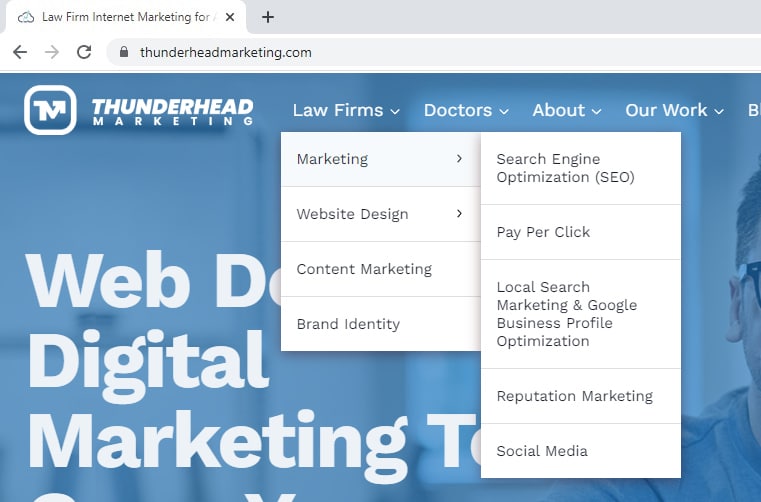Gone are the days when a law firm’s reputation was built solely through word-of-mouth, print advertisements, and the hefty Yellow Pages. These traditional marketing avenues, once the backbone of legal advertising, have shifted beneath our feet. In today’s digital-first world, the absence of an online presence is akin to standing silent in a bustling marketplace.
Like all industries, the legal profession has had to navigate the transition from the tangible to the digital. This evolution brings with it myths and misconceptions about the necessity and benefits of having a website for law practices. Let’s debunk these myths, setting the record straight on why a website is not just an asset but a necessity for every lawyer and law firm in the modern digital landscape.

Myth 1: Traditional Marketing Is Enough
Reality: While word-of-mouth and traditional advertising have their merits, they’re no longer sufficient. The vast majority of people searching for an attorney will start with an online search. A well-optimized website increases your visibility, connecting you with clients who are already looking for the legal services you offer.
Myth 2: Websites Are Too Expensive
Reality: The cost of not having a website far outweighs the initial investment in creating one. With a variety of platforms offering cost-effective solutions, a website acts as a 24/7 marketing tool, showcasing your expertise to potential clients at a fraction of the cost of traditional advertising.
Myth 3: I’m Not Tech-Savvy Enough
Reality: You don’t need to be a tech wizard to have a professional website. Numerous user-friendly website builders are designed for novices, and professional web developers can create and maintain your site, allowing you to focus on your practice.
Myth 4: My Practice Is Doing Fine Without a Website
Reality: Even if your practice is currently getting by, a website is crucial for sustaining and growing your client base in the long term. It ensures your firm remains competitive and adaptable to changing client behaviors and preferences.
Myth 5: Concerns Over Privacy and Security
Reality: With advanced security measures and adherence to privacy laws, a professional website can safely handle client information. Transparent privacy policies and secure contact forms build trust with potential clients, ensuring confidentiality and security.
Myth 6: Relying Solely on Referrals
Reality: While referrals are valuable, they limit your practice’s growth potential if they are your only source of clients. A website complements referral efforts by validating your expertise through testimonials, case studies, and detailed descriptions of your services.
Myth 7: My Practice Is Too Niche for a Website
Reality: Specialized practices stand to benefit the most from a website by reaching a targeted audience seeking specific legal expertise. A website allows you to showcase your niche services to those in need, regardless of their location.
Myth 8: Fear of Negative Reviews
Reality: Online reviews offer valuable feedback, allowing you to address concerns and improve your services. A website provides a platform to showcase positive testimonials and respond professionally to any criticism, enhancing your reputation.
Myth 9: Underestimating Client Expectations
Reality: Modern clients expect convenience and accessibility. A website meets these expectations by providing round-the-clock access to information about your services, enhancing your firm’s professional image and client satisfaction.
Get Help Navigating the Law Firm Internet Marketing Maze
Interested in building or enhancing your law firm’s website but not sure where to start? At Thunderhead Marketing, we offer expert guidance and tailored solutions for law firms of all sizes to create a robust online presence that drives your practice forward. Contact us today to learn more.







